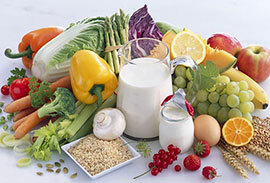Hypertensive heart disease - chronic pathology, in which the systolic blood pressure over 140 mm Hg. Art and diastolic blood - more than 90 mm Hg. v., not connected with disorders of other organs and systems (kidneys, adrenal glands, thyroid gland). Patients interested in hypertension 3 degrees of risk 3 - what it is. Grade 3 hypertension put when systolic blood pressure equal to or greater than 180 mm Hg. Art and diastolic - 110 mmHg Risk 3 shows a high degree of risk - a combination of hypertension 3 degrees more than 3 risk factors.

Causes of
Causes of hypertension 3 degrees of risk 3 can be divided into 2 groups:
- Primary - increase in pressure occurs due to disease of the heart or blood vessels.
- Secondary - high blood pressure due to extracardiac pathology.
To secondary causes of hypertension include:
- kidney disease: pyelonephritis, glomerulonephritis. It can be increased as the systolic pressure (increasing production of angiotensin kidneys) and diastolic (increase in blood volume, as there is a delay of sodium ions and water the body).
- The defeat of the medulla oblongata, where the vasomotor center.
- Chronic lung diseases: bronchitis, chronic obstructive pulmonary disease (COPD). Not only disturbed hemodynamics in the pulmonary circulation, but also increases the viscosity of the blood due to increase in the number of erythrocytes as a response to hypoxia (lack of oxygen tissues).
- adrenal disease - increased level of catecholamines in the blood (the hormones increase blood pressure).
- Thyroid disease: hyperthyroidism gland, hyperthyroidism (increased levels of thyroxine, a hormone that It increases the sensitivity of the heart to the adrenal hormones, ie even their small concentration increase pressure).
Risk factors MTR, having a value in the transition hypertension in a fourth step:
- The patient is a male.
- Age males over 55 years old, female - 65.
- Smoking.
- Increased lipid profile (mmol / L):
- the level of total cholesterol in the blood greater than 4.9;
- cholesterol in low density lipoproteins (atherogenic, i.e., causing atherosclerosis) more than 3;
- cholesterol in high density lipoproteins (antiatherogenic, i.e., protecting against atherosclerosis) in men - more than 1, and women - more than 1.2;
- triacylglycerols levels in the blood - more than 1.7.
- Altered glucose values (mmol / L): its level in the blood plasma (in the morning on an empty stomach) - more than 5.5; after a glucose tolerance test - from 7.7 to 11.
- Obesity (body mass index over 30).
- Waist in men - more than 101 cm and women - more than 87 cm.
The more the trigger factors for the development of hypertension and its complications, the higher the risk is set in the diagnosis. Reliably install it only after a full examination.
risk groups
Hypertensive heart disease risk of 3 degree 4 has a risk, which can be divided into modifiable and non-modifiable.
Modifiable - that can be influenced:
- high body mass (BMI over 30) - increases the load on the heart and blood vessels;
- consumption of alcoholic beverages;
- smoking - causes a spasm of coronary vessels;
- lack of exercise - lack of physical activity;
- love for salty foods - causes fluid retention in the body, acting on the heart;
- high cholesterol - leads to atherosclerosis;
- stress - causes the release of catecholamines, increasing the pressure.
Non-modifiable - which can not be affected:
- age over 55 years;
- male gender;
- diabetes;
- a genetic predisposition to hypertension.
symptoms
symptoms of hypertension can be isolated in a common group, as many of these people feel, based on physiological characteristics of an organism to a greater or lesser extent. In particular the concept of pain severity can be relative, since each person has a pain threshold.
Step 3 for hypertension characterized by the following features:
- episodes increase in blood pressure above 140/90 mm Hg. Article .;
- headaches with high blood pressure, especially in the neck;
- painful throbbing in the occipital region;
- noise in ears;
- increased heart rate, weak pulse while palpable;
- tendency to sweating;
- redness of the skin of the face and chest during the increase in blood pressure, as well as a small physical exertion or emotional experiences;
- discomfort in the heart.
The clinical picture of hypertensive disease may be different for different patients. A set of individual symptoms, so some patients do not feel pain and other pathological manifestations, even with blood pressure above 200/140 mm Hg. Art.
treatment regimen
The scheme of treatment of hypertension 3 degrees is chosen individually, always begins with monotherapy.
The objectives of the treatment of hypertension are the minimization of the probability of complications achieve blood pressure less than 140/90 mm Hg. Art. and correction of risk factors.
monotherapy
Monotherapy involves the use of B-blockers. If they are not effective doctor may choose another drug, while taking into account the individual characteristics of the organism. In rare cases even permitted treatment with diuretics.

For those at high risk to begin with monotherapy is inappropriate as to achieve compensation BP fails. Use high dosages of the drug does not make sense. When violations 3 Step 3 degree is assigned, so it does not allow to achieve a positive effect on the treatment.
dual combination
Dual combination - 2 drugs prescribed to patients with grade 3 hypertension. Considered rational combination:
- ACE inhibitors and diuretics;
- B-blockers and diuretics;
- ACE inhibitors and calcium antagonists;
- angiotensin receptor blockers and calcium antagonists;
- ACE inhibitors and calcium antagonists.
Each drug has its point of application, therefore, necessary to select drugs step in the pathology 3 3 risk doctor can only after the survey.
triple combination
The combination of the three drugs administered in cases where the two drugs is not enough, the presence of accompanying pathologies, as well as third degree hypertension. Use a combination of:
- ACE inhibitors, calcium antagonists, and B-blockers or diuretics;
- angiotensin receptor blockers and calcium antagonists, and B-blockers;
- angiotensin receptor blockers with diuretics and B-blockers or calcium antagonists;
- ACE inhibitors, diuretics and B-blockers.
preparations
Hypertension 3 degrees, treatment with these drugs:
- ACE inhibitors (angiotensin converting enzyme): Enalapril, Captopril, Perindopril. Reduces the formation of angiotensin, which increases blood pressure.
- angiotensin receptor blockers: Losartan, Vazotenz. Do not give angiotensin act on blood vessels.
- Calcium antagonists: Verapamil, Diltiazem, Nifedipine - reduce the pressure by decreasing calcium entry into cardiac tissue, vascular dilatation.
- B-blockers: bisoprolol, metoprolol, Egilok, Biprol. C1-adrenoceptor blocking the heart, reducing the intake of calcium in the cells of the heart, reducing the formation of ATP. This leads to a decrease in contractility, excitability, slowing heart rate, which is manifested decrease in blood pressure numbers.
- Diuretics - substances which reduce blood pressure by removing liquid from the body. In the treatment of hypertension used:
- thiazide diuretics (Hypothiazid, Hydrochlorothiazide) - reduce sodium resorption, thereby increasing the excretion of liquid, reducing blood pressure;
- aldosterone antagonists (spironolactone, Veroshpiron) - increase fluid excretion by the blockade Aldosterone action - adrenal hormone which inhibits the sodium, chlorine, and with them the water.
In severe stages of hypertension is used loop diuretics (furosemide, Lasix) - act on the level of the loop of Henle, increasing the excretion of sodium, potassium, magnesium and water.
Food
Correction of diet for hypertension stage 3 3 risk is carried out not only for weight loss, but also reduce the intake of salt, normalizing cholesterol levels. All patients can be given general advice:
- Abstinence from alcohol - alcohol detrimental effect on the liver and blood vessels.
- The use of salt is not more than 5 g per day - can reduce fluid retention, blood pressure level is reduced by 5-10 mm Hg. Art.
- Reducing the use of animal fat as a risk factor for high cholesterol levels - choose low-fat pork beef, veal, turkey.
- Consumption of foods rich in potassium (apricots, bananas) and magnesium (milk, curd).
- Restrictions in the use of bread and confectionery products.
It is recommended to eat sea fish at least 2 times a week, because it is rich in unsaturated fatty acids, which protect the blood vessels from atherosclerosis. You need to eat more fruits and vegetables - they are rich in vitamins, fiber, normalizing digestion.
If we talk about ways of cooking, you should prefer the boiled, baked or steamed dishes. Fried foods should be completely excluded, especially in the 3 stages of risk 4.
Possible consequences
Hypertension can lead to the following states:
- hypertensive crisis;
- renal failure - failure of kidney function;
- heart failure - reduced ability of the heart to a normal reduction;
- thrombosis;
- cardiac hypertrophy - increasing infarction;
- acute ischemic stroke;
- myocardial infarction - necrosis area of the heart muscle due to lack of blood supply;
- eye vascular lesion with a subsequent decrease of vision.
In the absence of complex and non-compliance with treatment advice in the transition there is a risk of grade 3 hypertension risk 4.
If you respect the rules and receive prescription drugs your doctor, go on a diet and keeping physically active, health is steadily satisfactory. Treatment is not just the pill, but changing your lifestyle, giving up bad habits.



